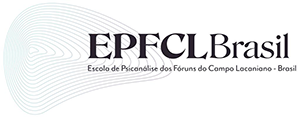O nome: Um direito ou um dever?
DOI:
https://doi.org/10.31683/stylus.vi32.628Keywords:
Name, right, duty, PsychoanalysisAbstract
The name is not a property because its sale, exchange, loan etc. are not permitted. If it is not a good like any other and due to the legal obligation of having a name, there is something in the name that already reveals in the legal field how the notion of right cannot be dissociated from the notion of duty. It is based on this assumption that the present article discusses the question: Name: a right or a duty? Therefore it discusses how the nomination process takes place in Brazil. Based on Lacan’s considerations about the Oedipal cross and the proper name, it argues how the name is a brand that demands a response. A child is given a name at birth based on the bet that there is a subject there. His/her name is woven by little strings of the symbolic, which grants the child with a place in the generational chain of his/her family and in the chain of signifiers. As a speaking being, once the child answers when called out, he/she will stress how he/she behaved in this place. As the child constitutes him/herself as a desiring subject, he/she is able to show his/her desire for Another thing.
Downloads
References
Campus, 2010.
BRASIL. Ministério da Justiça. Código civil brasileiro. Lei no 10.406, de 10 de janeiro
de 2002. Disponível em <http://www.planalto.gov.br/ccivil_03/2002/
L10406.htm>. Acesso em 3 jan. 2016.
DINIZ, M. Código Civil anotado. 8. ed. São Paulo: Saraiva, 2002.
FREUD, S. (1913). “Totem e Tabu” In: Edição Standard Brasileira das Obras Psicológicas
Completas de Sigmund Freud, v. 13. Rio de Janeiro: Imago, 2006, pp.
13-162).
_________. (1914). “Sobre o narcisismo: uma introdução”. In: Edição Standard
Brasileira das Obras Psicológicas Completas de Sigmund Freud, v. 14. Rio de
Janeiro: Imago, 2006, pp. 77-108.
GONÇALVES, C. Direito Civil Brasileiro, volume 1: parte geral. São Paulo: Saraiva,
2015.
LACAN, J. (1953). “Função e campo da fala e da linguagem em psicanálise”. In:
Escritos. Rio de Janeiro: Zahar, 1998. pp. 238-324.
_________. (1957-58). O seminário, livro 5: As formações do inconsciente. Rio de
Janeiro: Zahar, 1999.
_________. (1960). “Subversão do sujeito e dialética do desejo”. In: Escritos. Rio de
Janeiro: Zahar, 1998. pp. 807-842.
_________. (1961-62). O seminário, livro 9: A identificação. Recife: Centro de Estudos
Freudianos do Recife, 2014. (Versão brasileira fora do comércio).
_________. (1964). “Posição do inconsciente”. In: Escritos. Rio de Janeiro: Zahar,
1998. pp. 843-864.
_________. (1964). O seminário, livro 11: Os quatro conceitos fundamentais da psicanálise.
Rio de Janeiro: Zahar, 2008.
Downloads
Published
How to Cite
Issue
Section
License
Ao encaminhar os originais, os autores cedem os direitos de publicação para STYLUS.
Os autores assumem toda responsabilidade sobre o conteúdo do trabalho, incluindo as devidas e necessárias autorizações para divulgação de dados coletados e resultados obtidos, isentando a Revista de toda e qualquer responsabilidade neste sentido.



